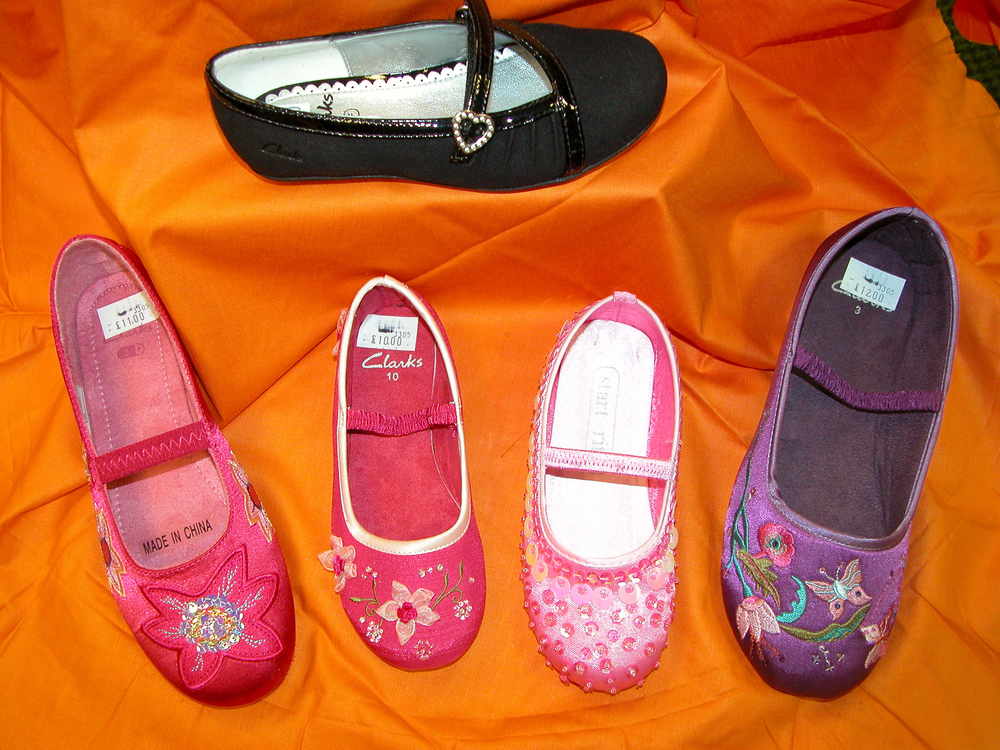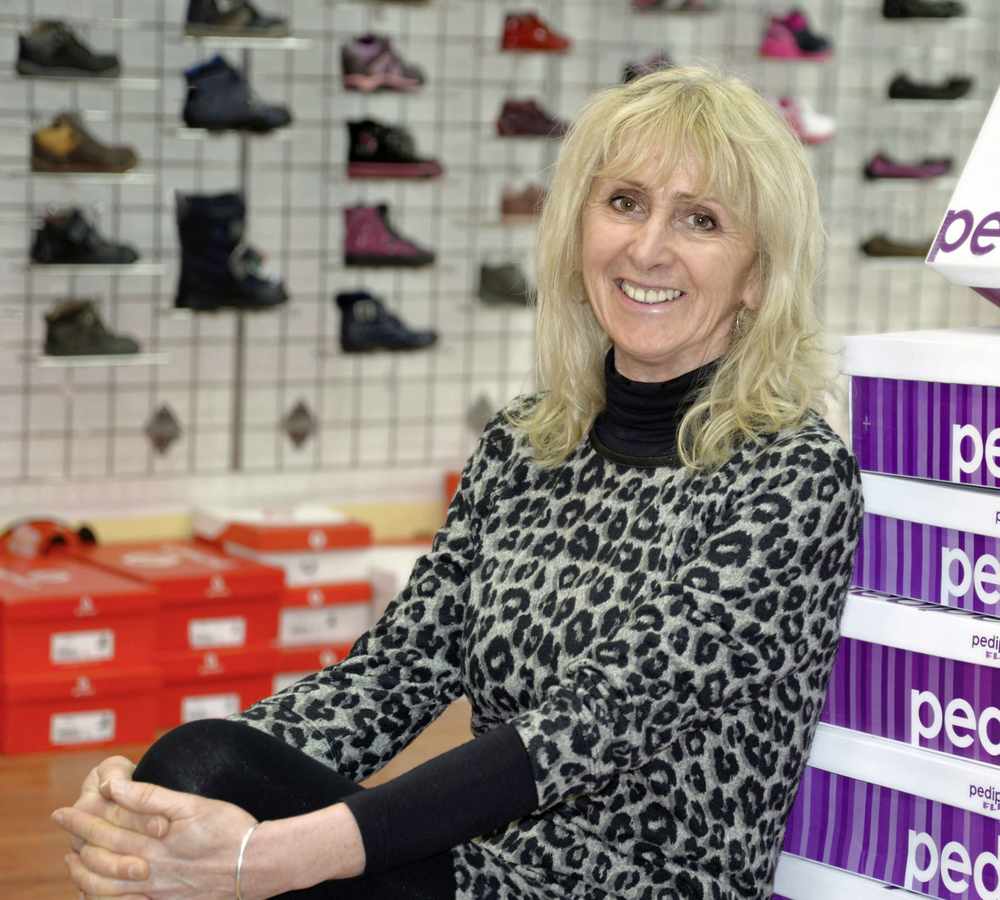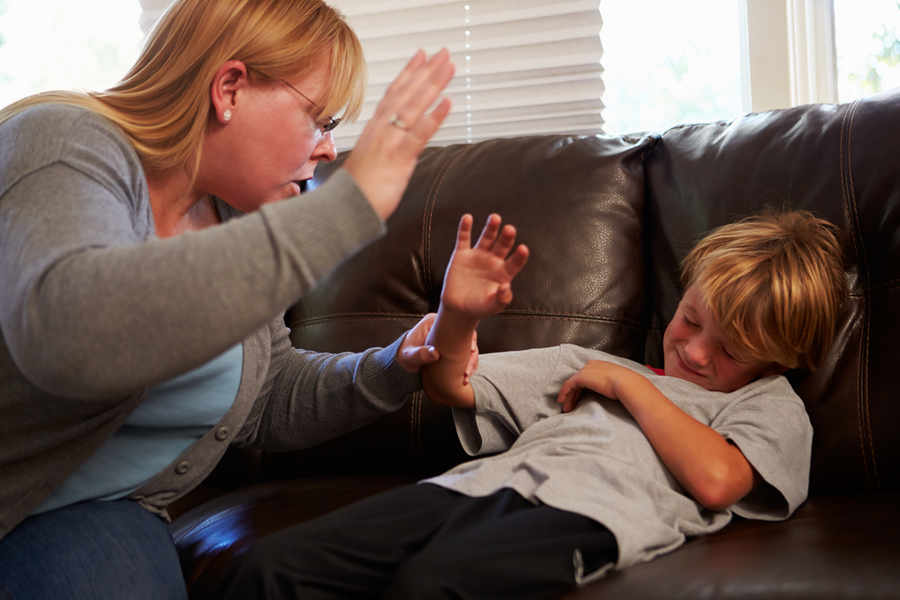Kitting out a youngster, particularly for school, can be very expensive, and as retail competition continues to expand in Jersey and online, the temptation can often be to opt for the cheapest items.

1. Ask children how their shoes feel. They don’t always tell you without prompting.
2. If the insoles are removable, take them out and let your child stand on them. There needs to be space at the ends and sides of their feet.
3. Put the shoes on carefully – feet are never exactly the same. The shoe should just clip the heel. It shouldn’t go on too easily or need pushing.
4. Get your child to stand up. Run your fingers along the outside edge of their shoe and make sure that you can’t feel their toes bulging.
5. Get them to sit back on a chair and pull the heels of the shoes. There should be no movement.
Shape: Very square feet should never go in a tapered shoe.
Depth: Over the top of the foot, the shoe shouldn’t be too tight or too loose.
But scrimping on the cost of new shoes for your child could ultimately prove to be a costly mistake.
According to the College of Podiatry, in the UK four out of five children could be wearing ill-fitting shoes that may go on to cause long-term damage to their feet.
The Glasgow-based institution appreciates that not all parents are able to afford several pairs of properly fitted everyday shoes for their children, but has stressed the importance of getting their main pair, especially their school shoes, fitted correctly by professionals.
JEP Parenting spoke to the owner of children’s shoe shop Fit Footwear Central in St Helier, Audrey Lauren-Chalmers, who echoed the warning about the need to protect children’s feet from an early age.
She says that hundreds of children in Jersey are going to school with ill-fitting shoes.
She is now offering a free shoe amnesty where she will check any shoe, wherever it was bought, and give free advice.
Experts say that children who wear ill-fitting shoes can end up with blisters, pressure sores and ingrowing toenails in the short term, to feet deformities like hammer toe and knee and posture problems in the long term.
‘Many parents genuinely haven’t got a clue – and why should they?’ said Mrs Lauren-Chalmers.
‘The advice I give in my shop sometimes shocks them. I have seen an increasing number of children’s school shoes, purchased elsewhere, being brought in for me to check and, to be frank, the fittings have been terrible.
‘Mums have bought them, for whatever reason, and then quickly realised or suspected that things were not right.’
It has been reported that four million children in the UK are wearing the wrong type of shoes, and experts are urging parents to take as much care of their children’s feet as they do with their teeth.
Mrs Lauren-Chalmers says that she is offering this shoe amnesty to give free advice and not to make a sale.

‘This is no hard sell, just genuine feedback based on many years of fitting thousands of little feet. I started selling children’s shoes in Fit Footwear in 2006, as a result of bad experiences I had buying my own daughter’s school shoes.’
She is advising parents to ask lots of questions when buying children’s shoes.
‘Your shoe fitter should be able to tell you everything about each product – full time members of staff are best suited for this,’ she said.
‘Parents are in the unenviable position of having to replace shoes on a regular basis.
‘Trying to save money by buying cheaper school shoes can be a false economy. A good-quality leather shoe, properly fitted and allowing for adjustment as the feet grow, will be more comfortable and will last much longer, especially if regularly polished.’
She added that some school shoes are so unsuitable they are known to cause accidents.
‘My advice would be to avoid slip-on school shoes for girls altogether. They might look more grown-up, but they are impossible to fit allowing for any growth. They can be dangerous, and cause your daughter to slip over. There have been incidents in the UK where girls have broken a leg as a result, and many schools ban this type of footwear completely.’
And she said that it is recommended to have your child’s feet measured every 12 weeks. ‘Shoes that are too rigid or too tight can change the shape of your child’s feet.
‘They may not need shoes replacing, but they may need the width changing.’ of the latest brands allow for this by providing extra insoles, enabling the shoe fitter to adjust width and depth quickly and easily.’

SMACKING children is wrong, according to the leader of the Catholic Church in Jersey – even though the Pope appears to have backed that form of punishment.
Monsignor Nicholas France said that hitting a child was ‘horrible’, and although he acknowledged that it was a method of punishment used by many parents, he said it was still wrong. Pope Francis appeared to back parents who hit their children as long as the child’s dignity was maintained.

Here is what followers on JEP Parenting Facebook had to say:
Kiley: ‘I like to change the roles a little. Parents are allowed to smack their child to teach them right from wrong because they love them. Change that to a man is allowed to hit his wife to teach her right from wrong because he loves her – now how do you feel? Or a child is allowed to hit their elderly parent to teach them to behave because they love them – doesn’t sound good, does it? Yet as a society we ‘allow’ our youngest, most innocent, most impressionable people to be hit. It makes no sense. We don’t need religion to condone or condemn it.’
Chanel: ‘You can’t just go around smacking adults, so why should you be allowed to smack a defenceless child? There are other ways of discipline. I know in some cases people are advised to by others, but there’s really no need.’
Janice: ‘I was beaten with a leather belt as a child on the bare bottom, so know how not to treat my child. I can barely look at her wee face after she’s been told off, never mind hit her.’

UP to 95% of childcare workers are now encouraging their children to use technology from an early age, according to the head of the Jersey Child Care Trust.
Fiona Vacher, executive director of the Trust, has introduced more digital technology into her family life after listening to a talk by a UK professor last month.
Fifty early-years practitioners from the children’s workforce attended Digital Jersey’s hub in St Helier to listen to Professor Stephen Heppell, who said there was no such thing as ‘too early to embrace new technologies’.
Mrs Vacher, who organised the talk with Digital Jersey, said: ‘As a parent, I feared technology taking over human inter-action in our family’s life and so hadn’t introduced much technology to our children other than an occasional visit to the Newsround website. Since listening to Prof Heppell, things have changed in the Vacher household already.
‘I have taken lots of opportunities to bring digital technology into our lives, encouraging the children to send an email, a text on my phone, checking out Google Maps, the weather reports and so on.
‘We will maintain all the values that we had before, like no technology at any meal table, and it will still only be a part of our activities as a family, but it will feature more now. The learning potential is huge.’






